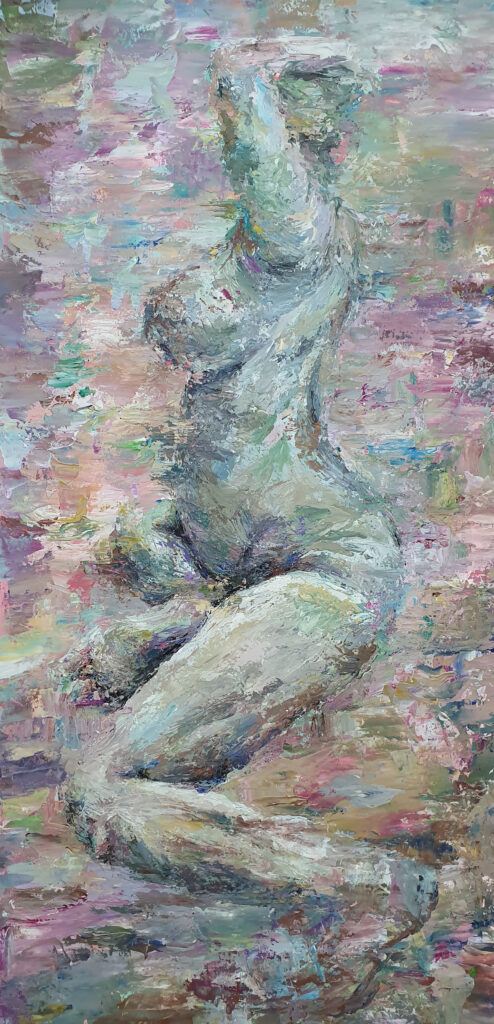
I decided to observe the human form with more attention to detail. I tried to capture what for me is the most comfortable pose and moment of the day – the time when you return home from work and unwind completely in the afterglow of sunset. I depicted a woman’s body with a soft curvature as if to reinforce a sense of relaxation and immersed her in background color with the last remains of sunset. Rather than a brush, I used a palette knife to stamp the colors on the canvas. I then smudged the colors with my fingertips to accentuate the softness and share a moment of fluidity and rejuvenation with my audience.
Jaeyeon Kim is a fine artist who works to claim spaces for the public to engage with art without difficulty. Her work often revolves around detailed paintings, installation art, and sculptures, which become a place for social engagement and visual communication. Standing at the many crossroads of life, my decisions would add up, change my course, and alter the fabric of my being. Go straight, sail smoothly, and travel the more conventional yet ultimately uninspiring path. Step sideways, however, and journey across rugged terrain into unexpected storms and incredibly beautiful clearings. Although risky to a point and laden with obstacles, going the long way round has certainly opened my eyes and shaped me into the type of artist I am today.